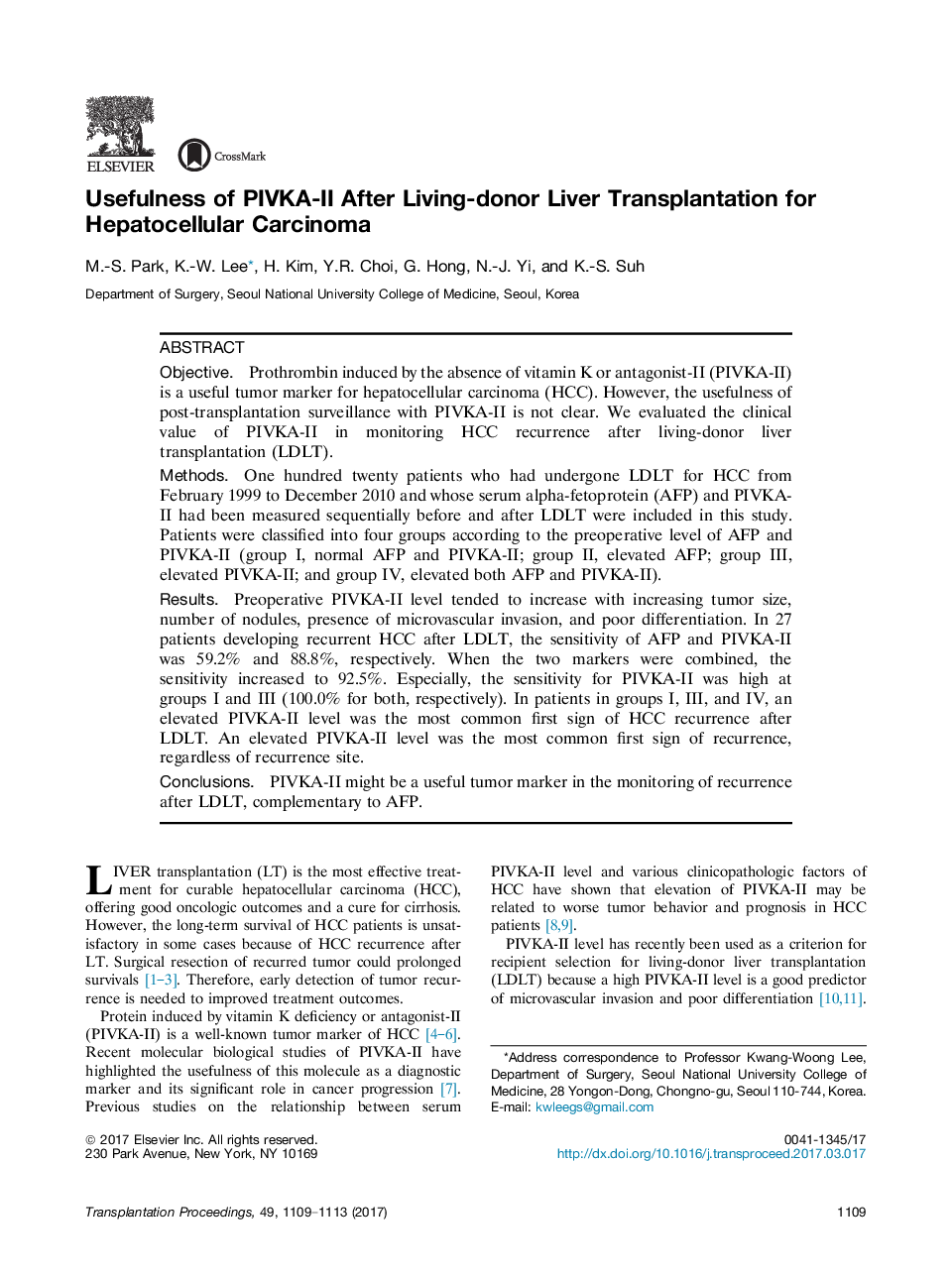| Article ID | Journal | Published Year | Pages | File Type |
|---|---|---|---|---|
| 5728809 | Transplantation Proceedings | 2017 | 5 Pages |
ObjectiveProthrombin induced by the absence of vitamin K or antagonist-II (PIVKA-II) is a useful tumor marker for hepatocellular carcinoma (HCC). However, the usefulness of post-transplantation surveillance with PIVKA-II is not clear. We evaluated the clinical value of PIVKA-II in monitoring HCC recurrence after living-donor liver transplantation (LDLT).MethodsOne hundred twenty patients who had undergone LDLT for HCC from February 1999 to December 2010 and whose serum alpha-fetoprotein (AFP) and PIVKA-II had been measured sequentially before and after LDLT were included in this study. Patients were classified into four groups according to the preoperative level of AFP and PIVKA-II (group I, normal AFP and PIVKA-II; group II, elevated AFP; group III, elevated PIVKA-II; and group IV, elevated both AFP and PIVKA-II).ResultsPreoperative PIVKA-II level tended to increase with increasing tumor size, number of nodules, presence of microvascular invasion, and poor differentiation. In 27 patients developing recurrent HCC after LDLT, the sensitivity of AFP and PIVKA-II was 59.2% and 88.8%, respectively. When the two markers were combined, the sensitivity increased to 92.5%. Especially, the sensitivity for PIVKA-II was high at groups I and III (100.0% for both, respectively). In patients in groups I, III, and IV, an elevated PIVKA-II level was the most common first sign of HCC recurrence after LDLT. An elevated PIVKA-II level was the most common first sign of recurrence, regardless of recurrence site.ConclusionsPIVKA-II might be a useful tumor marker in the monitoring of recurrence after LDLT, complementary to AFP.
